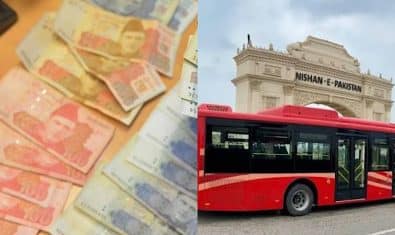The approval of two foreign loans worth $700 million has been delayed owing to the federating units’ unwillingness to accept the central government’s position on a consistent sales tax system and property valuation rates across the country.
According to Express Tribune, the World Bank (WB) and Asian Infrastructure Investment Bank (AIIB) will each release loans of $350 million if the provinces accept the Federal Board of Revenue’s (FBR) property valuation rates and a unified sales tax on all goods and services across the country, among other conditions.
The WB has stated that it will provide a loan of at least $350 million under its Resilient Institutions Strengthening Program (RISE-II) if the two prior actions are carried out. It wants Pakistan to unify the General Sales Tax (GST) regime for federal and provincial governments, and modify the Fiscal Responsibility and Debt Limitation Act (FRDLA) in Parliament.
GST harmonization has been a longstanding issue as authorities have struggled to bring uniformity to GST laws, tax rates, and the GST’s scope over the last few years. Moreover, there are different GST rates in the country as Sindh charges 13 percent GST on services; Punjab, 15 percent; and the FBR, 17 percent.
Other conditions include the implementation of the Circular Debt Management Plan (CDMP) and the recovery of power sector receivables.
Similarly, the Asian Infrastructure Investment Bank has indicated that it will match the World Bank’s prospectus release to bring the total facility to $700 million.
Pakistan is also negotiating another WB loan for its Pakistan Program for Affordable and Clean Energy (PACE)–II, to address its colossal circular debt by lowering power generation costs, decarbonizing the energy mix, improving distribution efficiency, and retargeting electricity subsidies.
Government sources told reporters that the lender has committed $600 million to PACE-II so far and could release another $300 million for the program. The loan amount has not yet been set but government sources revealed that efforts would be made to secure clearance from the World Bank for these two loans in the second part of the current fiscal year.
Other data suggests that the government expects to receive at least $5.7 billion from multilateral creditors in the current fiscal year. While recurrent loan inflows do not usually paint a good picture for a developing country’s near-term economic outlook, a few might argue that disbursements of such magnitudes could help to avert further degradation of the forex reserves of the State Bank of Pakistan which has lost $4.346 billion since August 2021.
The SBP’s weekly report released on 3 February notably revealed that the country’s total liquid foreign exchange reserves went down by $398 million to $22.08 billion on 28 January as compared to $22.48 billion in the previous week. Its reserves fell by $463 million to $15.72 billion during the week under review against $16.19 billion on 21 January.
Meanwhile, the net foreign reserves of the commercial banks stood at $6.356 billion, depicting an increase of $64.9 million on a weekly basis.
























